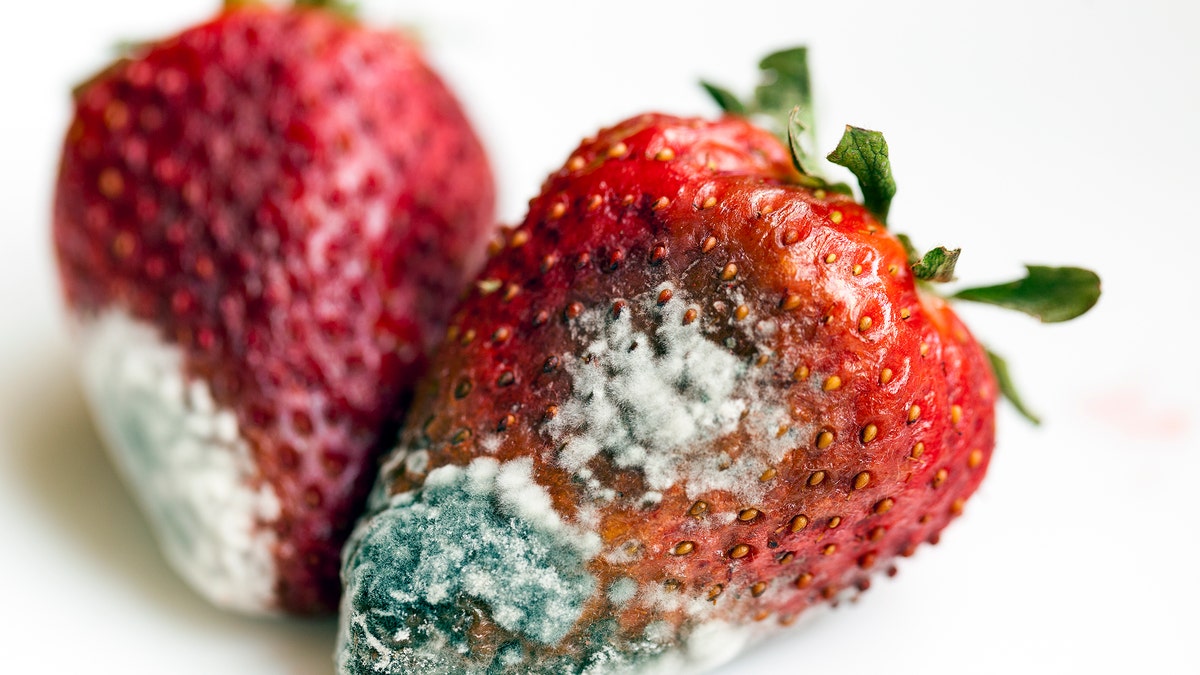
red ripe strawberries, which have a white mold. small depth of field. is not isolated. close-up.
Food waste is a big problem, and produce is particularly vulnerable. Largely due to spoilage, 40-50 percent of the world’s fruit and vegetable output is wasted, according to a U.N. estimate, along with a great deal of labor, water and energy.
Researchers at Tufts University (some of whom have since moved elsewhere) developed a technology that may cut those losses. It’s an invisible, silk-based coating that seems to protect fruits from deteriorating for days without refrigeration—a feature that offers the prospect of substantial energy savings as well.
The scientists found that strawberries dipped several times in a water-based solution containing just 1 percent of a biodegradable silk protein called fibroin endured for a week at room temperature with little apparent deterioration. Strawberries that weren’t dipped in the solution changed color and became dehydrated under the same conditions, on their way to going bad.
Fiorenzo Omenetto, one of the scientists, says that the coating works by inhibiting fruit respiration. Uncoated strawberries release carbon dioxide, oxygen and water vapor in a process that eventually leads to spoilage, but a few dips in the silk solution limited this discharge. The key, Dr. Omenetto says, is getting the silk protein to form the proper crystalline structure, which is done by treating the dipped strawberries with water vapor. Once they are picked, strawberries do not ripen any further. Bananas do, and the researchers found that their technology slowed their ripening.








































